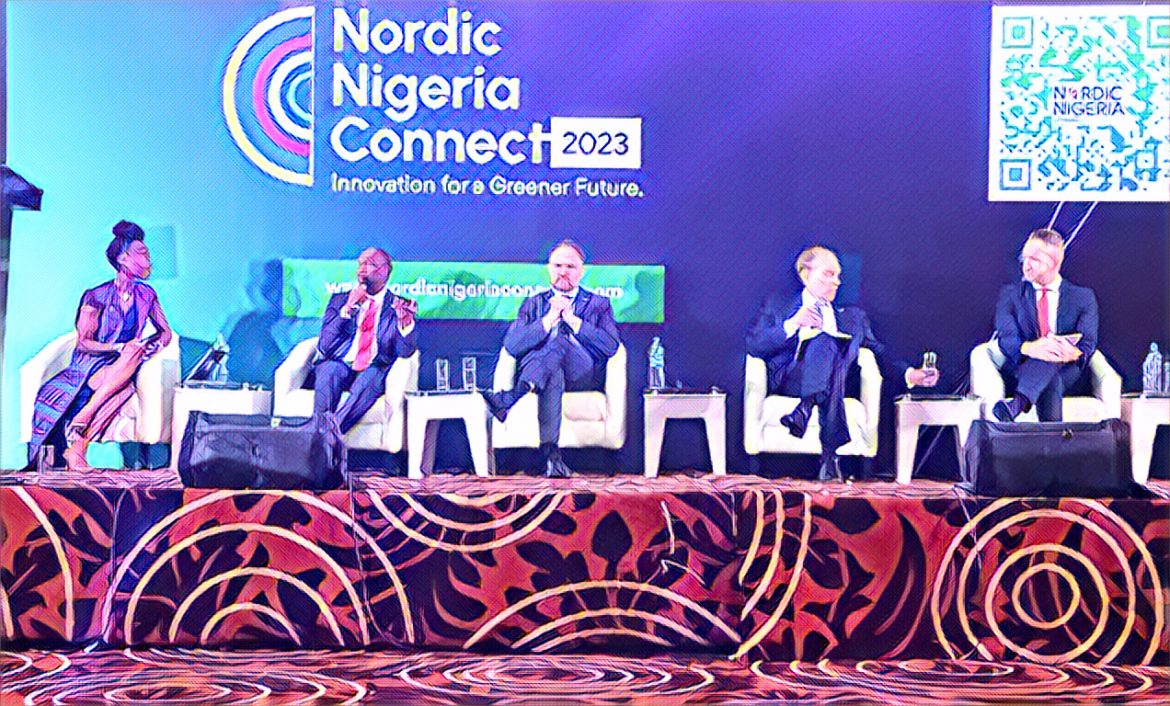Nigeria and Denmark are exploring ways to collaborate on finding solutions to environmental challenges, such as pollution, climate change, and waste management. The two countries share a common interest in promoting a sustainable green economy that can create jobs, reduce poverty, and improve well-being.
This was the main theme of the Nordic-Nigeria Connect Conference 2023, held in Lagos. The conference, organised by the Nordic embassies in Nigeria, brought together government officials, business leaders, experts, and civil society representatives from both regions to exchange ideas, experiences, and best practices on innovation for a greener future.
The conference featured sessions on topics such as renewable energy, circular economy, digital transformation, sustainable food systems, and climate-smart agriculture. The participants discussed the challenges and opportunities for green growth in Nigeria, as well as the potential areas for cooperation and partnership between the Nordic countries and Nigeria.
The Nordic countries, namely Denmark, Sweden, Finland, and Norway, have long been pioneers in sustainable development and innovation, setting benchmarks for the rest of the world. They have achieved high levels of economic and social prosperity while reducing their environmental footprint and greenhouse gas emissions. They have also invested heavily in research, education, and technology, fostering a culture of innovation and entrepreneurship.
Nigeria, on the other hand, is a dynamic and rapidly growing economy, with a large and diverse population, abundant natural resources, and untapped potential. However, the country also faces many environmental challenges, such as land degradation, deforestation, water pollution, waste management, and vulnerability to climate change impacts. These challenges pose serious threats to the country’s development goals, as well as the health and livelihoods of its people.
The conference highlighted the need for Nigeria to adopt a green economy approach, which would enable the country to harness its natural resource potential in a sustainable and inclusive manner while addressing environmental challenges and risks. A green economy would also allow Nigeria to take advantage of the emerging global push towards low-carbon and resilient development, and to access new markets, technologies, and financing opportunities.
Some of the key recommendations from the conference include:
- Developing a national green economy strategy and action plan, with clear targets, indicators, and incentives for green growth.
- Strengthening the policy and regulatory framework for environmental protection, enforcement, and compliance, as well as promoting green investments and innovations.
- Enhancing the capacity and awareness of relevant stakeholders, including government agencies, the private sector, civil society, and media, on the benefits and opportunities of a green economy.
- Building partnerships and networks among the Nordic and Nigerian actors, as well as with other regional and international partners, to facilitate knowledge sharing, technology transfer, and joint initiatives on green economy issues.
- Leveraging the existing platforms and mechanisms, such as the Economic Community of West African States (ECOWAS), the African Union (AU), the United Nations (UN), and the World Bank, to support and coordinate the green economy transition in Nigeria and the region.
The conference concluded with a call for action and commitment from both the Nordic and Nigerian sides, to follow up on the outcomes and recommendations, and to continue the dialogue and collaboration on advancing the green economy agenda in Nigeria.
Source: Nigerian Tribune


